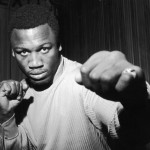Ali, Me and Two Guys Named Frank
Sunday, June 5th, 2016By Bob Gaydos
Muhammad Ali was the most famous person on the planet for much of his life and mine. It’s possible that, even in death, he still held that distinction, even though he had long ago lost the physical skills that originally brought him to the world’s attention as Cassius Clay. He was young, brash and, in his own immodest opinion, “the greatest” at what he did.
What he did, of course, was “float like a butterfly, sting like a bee,” while making his opponents in the most brutal of sports, boxing, look foolish. As Clay, he was unquestionably the best — the heavyweight champion of the world. The title itself conveyed a measure of fame. But it was as Ali that he became most famous and, eventually, beloved and respected by millions.
Not by all, of course. He was human, with faults and flaws. But also, as it turned out, he was a man with deep-rooted convictions. He demonstrated them as Cassius Clay by refusing to report for the draft during the Vietnam War, declaring that he had no argument with the Vietnamese people and would not kill them on the orders of a government — his own — that had denied, and continued to deny, him and other blacks basic rights from the very founding of this nation.
He was threatened with arrest and imprisonment, with the loss of his boxing crown and, as he well recognized, with the loss of millions of dollars. “Lock me up,” he said. In the end, as Muhammad Ali, a Muslim, he won his battle in the courts, reclaimed his boxing title in the ring, continued to speak out against bigotry and became a symbol of courage and respect worldwide.
Ali died last week, at 74, largely the result of the punishment he took in the boxing ring by coming back to prove he was still the greatest. Having just turned 75 myself a few days earlier, I was thinking about Ali and what we do with our lives after a certain point, but more specifically, about people who achieve something special, something unique, something that, if you really think about it, should make you stop and say, “Wow.”
As fate would have it (pay attention, fate is always having it), I found myself at an event in my area that offered up two men in one high school sports arena who’d had their own “wow” moments — Frank Shorter and Frank Giannino.
To say they are both former long-distance runners would be like saying Ali had good footwork in the ring. Shorter started running to school as a young teenager every day, from one side of the City of Middletown to the other, and wound up winning the gold medal in the Olympics marathon in Munich in 1972, a feat credited by many with sparking the running boom in the United States. He followed up with a silver medal four years later.
Giannino, who, despite success, described himself as a “no-talent ultra-marathoner” in high school, went a little farther. Actually, a lot farther. In 1980, he completed what remains to this day, the fastest run across the United States: 3,100 miles in 46 days, 8 hours and 36 minutes. It’s still listed in Guinness; you can look it up.
Both men were in Middletown, N.Y., on a warm Saturday morning, encouraging young runners, the men’s mere presence a testament that special achievements can be as close as your next-door neighbor. Hey, if Frank could do it … Unlike Ali, both Franks excelled in a sport that allows its participants to age more gracefully and sometimes still enjoy it. But they have not rested on their laurels.
Giannino, 64, owns a running store and has shown that determination and discipline that took him across the country 36 years ago in organizing and promoting local running events for years. In fact, he was instrumental in resurrecting the popular running event at which we were all present.
Shorter, 68, appears at running events and is a motivational speaker. But he has also served as chairman of the United States Anti Doping Agency, the independent agency which has a stated mission of being “the guardian of the values and life lessons learned through true sport.”
Shorter stepped down as USADA chairman in 2003. He has testified before Congress and written articles about drugs in sports. He says he is still involved “unofficially” in keeping sports clean. “I don’t want to sound mysterious,” he said, “but I’m still involved. What’s going on with the Olympics today is that they’re finally doing what they said they were doing years ago. … They told us they couldn’t keep samples for any length of time. Now look. …”
“I don’t do this for the recognition,” he added.
No kidding. Rooting out cheaters in sports is as popular in some areas (Lance Armstrong fan clubs for example) as refusing to report for the draft on moral grounds.
I guess my lesson learned here is that, whatever you do, whatever you may have accomplished, for as long you can, you keep showing up for life. You lace up your running shoes and stay true to your principles. And don’t forget to acknowledge people who do special things. It never hurts to hear a little “wow” once in a while.
I think I may have read that before. I may have even written it before. But wasn’t this much more enjoyable than politics?
rjgaydos@gmail.com



